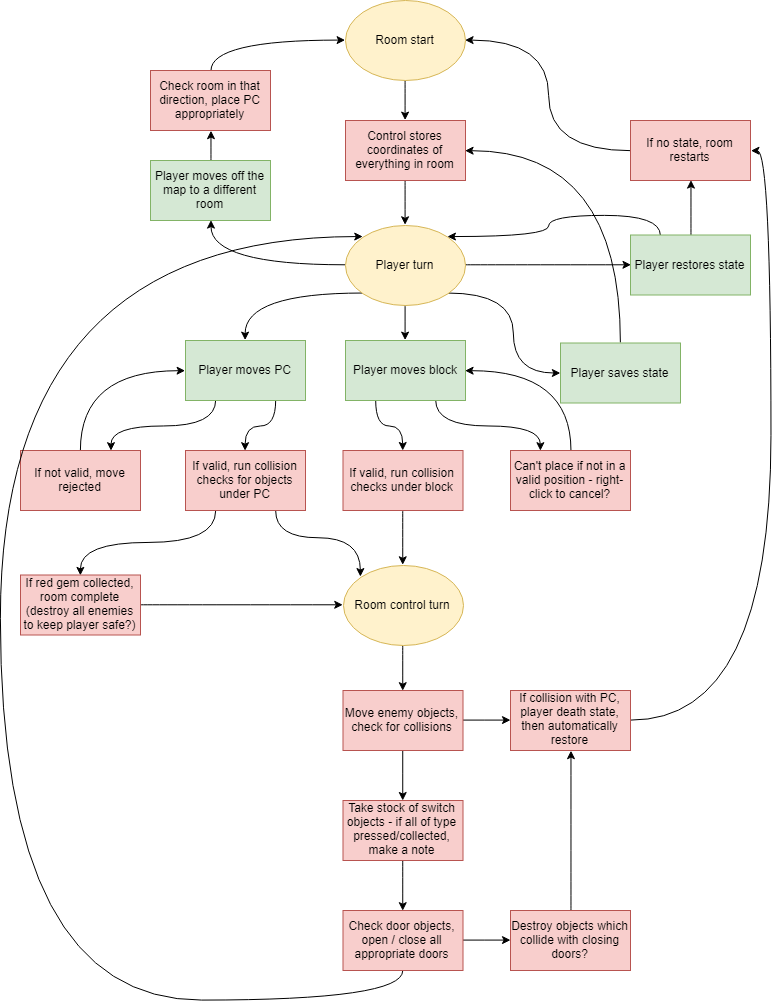Update 3.5
Very little progress today! Busy working on my CV and job applications.
I realised I don't really have a clear idea of how I want to structure the core game loop. So pretty much all the game jam work I've done today has been planning game states on a flowchart:

I think when the player moves, the initial collision checking is just to check if the control phase needs to do something. For example:
- player picks up key
- that key's "collected" state is switched on
- enemy objects move
- the game checks all the keys: all "collected" keys get moved offscreen, and if all keys are "collected", the game makes a note for when it moves on to checking if the doors need to be opened
This flowchart needs refining a bit (here, the player can die when a door closes on them, but the player needs 2 turns to move to the other side of a 1-tile-wide door - that means fewer opportunities for puzzles which require precise timing, so that idea wants tweaking). But it gives me a stronger basis from which to work. I have a better idea of what code should go where, and how to control the player's movement.
Boy, I have a hard time with programming. I get why some aspiring game devs just want to be idea guys.
I spent my free time replaying The Talos Principle instead. I'm going to pretend this is game jam research because the Talos Principle does something that a lot of great puzzle games do - its puzzles are based on consistent sets of elements, and solutions come from figuring out the implications of these elements. Like how a cube hexahedron can weigh down a pressure plate, or act as a platform or a stepping stone, or block a laser beam, or slow down the player's movement. DROD does this better than any other game, I think - every element has some kind of logical interaction with almost every other element which you can either intuit or experiment with ("if my sword can reflect the aumtlich's laser beam, maybe I can lure an enemy with a sword to stand in the right place to reflect it while I do something else on the other side of the room...") With as a strong and varied a library of game elements as DROD has, there's so many opportunities for puzzles to test spatial reasoning, lateral thinking, and so on. I don't think I have the time to implement many different game elements, but I'd love to get a few different ideas working in Arcane before I have to knuckle down and get the game finished.
Also the Talos Principle does my favourite thing in puzzle games, which is puzzles that completely disregard the structure of the game and force you to think outside of the box. No one solved that Sphinx puzzle by themselves.
Okay, more progress tomorrow, I hope. I have to get back to writing a personal statement explaining why I'm suitable for a job I'm unsuitable for.

